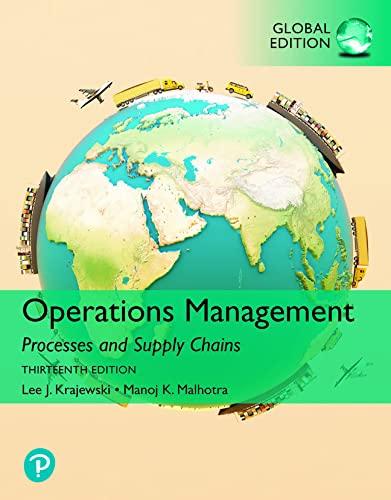Question
This is the essay about the ERP Is this essay good? Are information and literature true? do you have any suggestions? Section 1:Executive Summary Executive
This is the essay about the ERP
Is this essay good? Are information and literature true? do you have any suggestions?
Section 1:Executive Summary
Executive Summary Enterprise Resource Planning (ERP) systems have become essential for businesses of all sizes to manage their operations. Due to the rapid pace of technological breakthroughs and the ongoing evolution of the workplace, organizations must adapt in order to stay competitive. The emergence of machine learning (ML) and artificial intelligence (AI) in the workplace is one of the most important recent developments. Business operations are changing due to AI and ML, from increased productivity to better customer experiences. The implementation of an ERP system brings many benefits, such as increased efficiency, improved communication, and streamlined processes. However, it also comes with some drawbacks, such as high costs, potential resistance to change, and the need for skilled personnel. This essay will examine the effects of AI and ML on the workplace, the advantages and disadvantages of their application, and their potential in the future.
Section 2: Introduction/Background
An ERP system is a software platform that integrates all of a company's operations and processes into a single system. It covers all aspects of the business, including finance, human resources, manufacturing, supply chain, sales, and customer service. ERP systems are designed to improve business efficiency, productivity, and decision-making by providing real-time information and insights into the company's operations. Although they are frequently used interchangeably, artificial intelligence and machine learning (ML) is not the same. The development of computer systems that are capable of decision-making and problem-solving, which ordinarily require human intelligence, is referred to as "artificial intelligence" (AI). On the other hand, ML is a branch of AI that focuses on creating algorithms that can learn from data and get better over time.
The workplace is already changing which automates monotonous jobs and enhances decision-making. In order to respond to consumer inquiries quickly and accurately, chatbots are increasingly being employed in customer care, freeing up human employees to handle more complicated concerns. Employers are saving time and money by using AI-powered recruitment tools to filter resumes and find the best candidates for a position.
Section 3Analysis Key Benefits of ERP System Implementation
Benefits of AI and ML in the Workplace:
Improved Productivity: AI and ML may automate time-consuming, repetitive operations like data input and analysis, freeing up staff members to concentrate on higher-value duties. As a result, there may be an improvement in employee satisfaction as well as greater production and efficiency.
Improved Decision-Making: Huge amounts of data may be analyzed by AI and ML, which can then produce insights and suggestions that can aid decision-makers in making more educated choices. Better company outcomes, including higher revenue and profitability, may result from this.
Improved Customer Experience: By responding to questions and complaints more quickly and accurately, AI and ML can enhance the customer experience. Virtual assistants and chatbots can offer round-the-clock assistance, cutting down on wait times and raising customer satisfaction.
Cost Savings: By lowering the need for human labor and boosting productivity, AI and ML can help firms save money. For instance, AI-powered predictive maintenance can assist companies in locating and resolving equipment issues before they result in expensive failures.
Drawbacks of AI and ML in the workplace:
Work Displacement: The potential for employment displacement is one of the most important downsides of AI and ML. Certain jobs may become obsolete as more tasks are automated, which would result in unemployment and a change in the labor market.
Lack of Transparency: Decision-making can be opaque due to the complexity and difficulty of AI and ML systems. This may give rise to ethical issues like a lack of responsibility and decision-making bias.
Cost of Implementation: Putting AI and ML systems into use can be costly, requiring a substantial investment in labor, technology, and software. Small firms could find it difficult to cover the start-up costs, which makes it challenging for them to compete with bigger, more established companies.
Data Privacy and Security: Data privacy and security are issues since the application of AI and ML necessitates the gathering and storing of enormous volumes of data. To safeguard against data breaches and online threats, businesses must make sure they have the proper data protection policies in place.
Section 4: Conclusion and Summary:
In conclusion, the implementation of an ERP system brings many benefits to businesses, including improved efficiency, streamlined processes, real-time information, and improved customer service. However, it also comes with some drawbacks, such as high costs, potential resistance to change, the need for skilled personnel, and potential disruption. Companies considering an ERP system implementation should carefully evaluate the costs and benefits and develop a comprehensive plan to ensure a successful implementation. With careful planning and execution, an ERP system can help businesses to become more competitive, agile, and responsive to market changes.
Step by Step Solution
There are 3 Steps involved in it
Step: 1
Overall the essay provides a comprehensive overview of Enterprise Resource Planning ERP systems and the impact of artificial intelligence AI and machi...
Get Instant Access to Expert-Tailored Solutions
See step-by-step solutions with expert insights and AI powered tools for academic success
Step: 2

Step: 3

Ace Your Homework with AI
Get the answers you need in no time with our AI-driven, step-by-step assistance
Get Started


